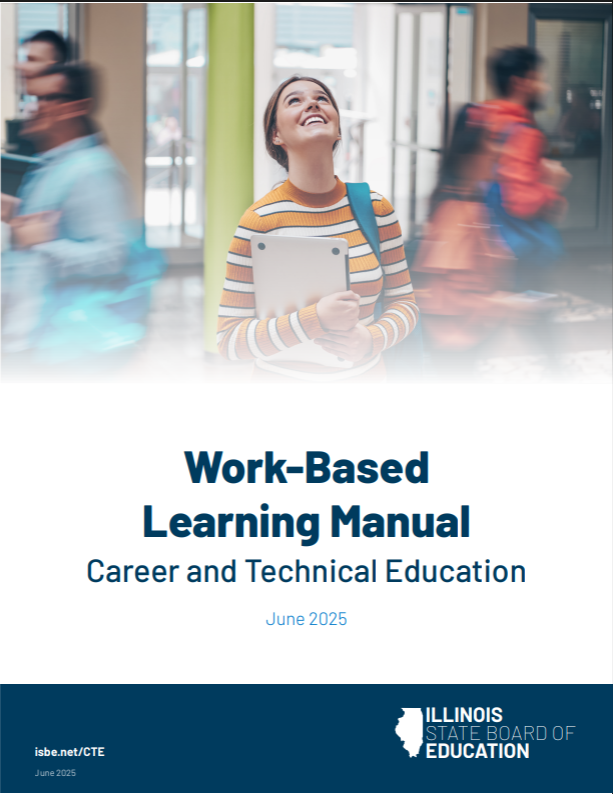Work-based learning (WBL) provides students with the opportunity to engage and interact with industry experts (employers, postsecondary institutions), while learning to demonstrate essential employability and technical skills necessary for today’s workforce.
WBL is defined in Perkins V legislation as “sustained interactions with industry or community professionals in real workplace settings, to the extent practicable, or simulated environments at an educational institution that foster in-depth, firsthand engagement with the tasks required in a given career field, that are aligned to curriculum and instruction.”
 The
Work-Based Learning Manual
The
Work-Based Learning Manual provides guidance for creating and improving work-based learning opportunities for K-12 students. Activities are designed to introduce Career Exploration as soon as possible, build increasingly interactive experiences, and maximize student exposure to careers and work-based learning opportunities by the time they complete secondary education.
provides guidance for creating and improving work-based learning opportunities for K-12 students. Activities are designed to introduce Career Exploration as soon as possible, build increasingly interactive experiences, and maximize student exposure to careers and work-based learning opportunities by the time they complete secondary education.
